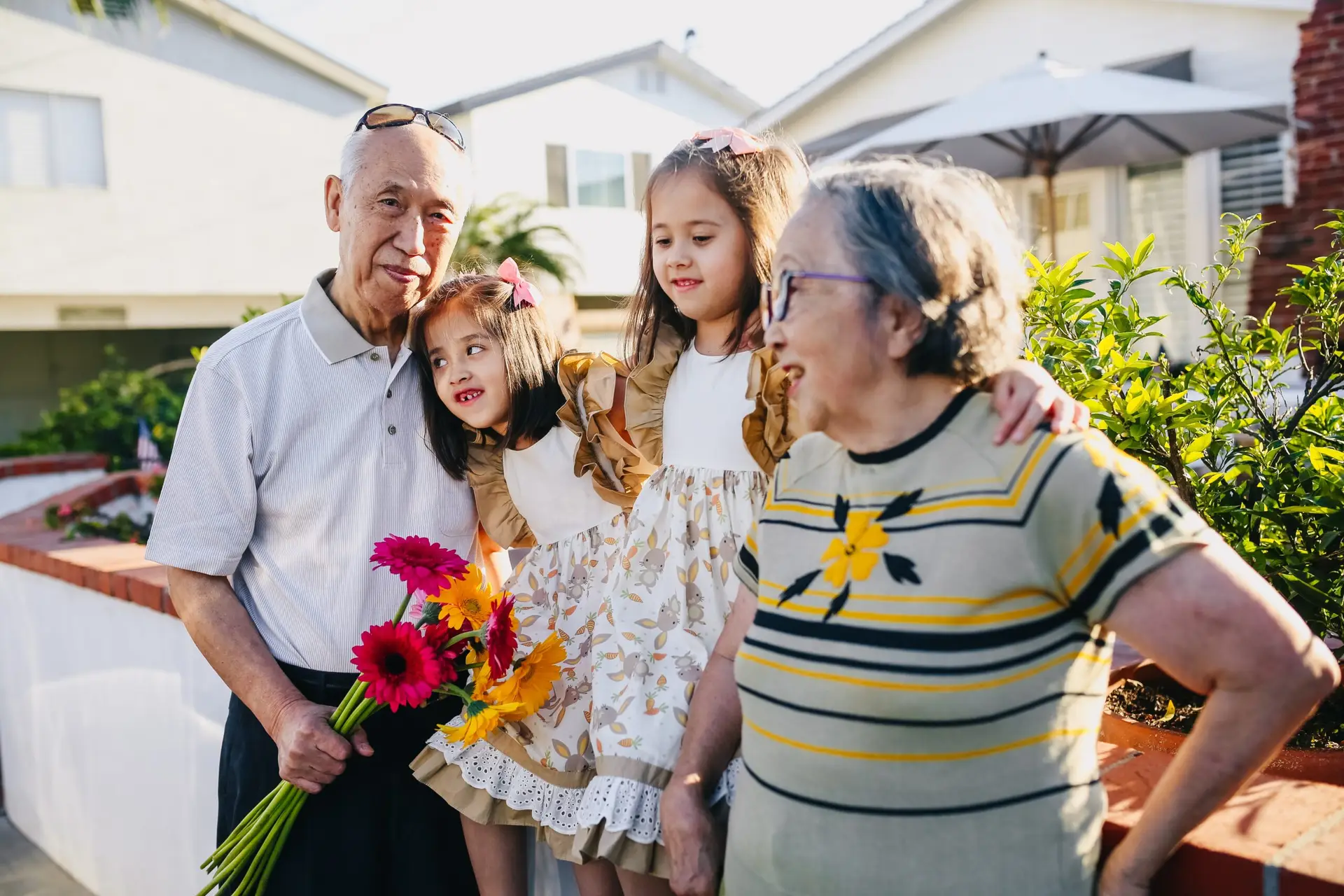More than 365 days have passed since we’ve hugged our aging loved ones, without fear of them contracting a deadly virus.
Today there is hope. As senior citizens continue to get vaccinated, the conversation is shifting from surviving to living. Families are planning intimate reunions. The parks are slowly filling with laughing children. Friends are reuniting for outdoor lunches—and the moments, once taken for granted, seem attainable again.
A future beyond Covid-19 is attractive, however, the hard truth is that we are far from eradicating this virus. Instead, it is essential to embrace a “new normal” and protect the seniors in your life as much as possible, while also supporting their mental and emotional wellbeing.
The following are five ways to keep the older people in your life safe as the world opens anew.
Get fully vaccinated
The first big step you can take towards protecting your aging loved ones is getting vaccinated against the Covid-19 virus, and helping them to get vaccinated too. There are currently three vaccines available in the United States, all of which have proven to be highly effective at preventing hospitalizations and deaths.
Although you and your loved ones can still contract the virus, the vaccine protects against its most severe symptoms. In a post-vaccine world, as Covid-19 cases and deaths decline, so too will the risk and fear of losing the older people in your life.
To find available vaccines in your area, visit the Center for Disease Control and Prevention website.
Wear your mask and socially distance
Many people are ready to abandon their masks after getting fully vaccinated. We get it! They can be hot, uncomfortable, and inconvenient. However, proper mask-wearing, as well as socially distancing, is still highly effective in preventing the transmission of Covid-19 and other infectious diseases.
While the vaccines help to prevent severe symptoms, our most vulnerable loved ones with suppressed immune systems remain susceptible. The vaccines mitigate the risks, but do not eliminate them. Therefore, it is essential for everyone to wear masks and socially distance when in close contact with the elderly, until the CDC and geriatric medical doctors advise otherwise.
Take advantage of virtual healthcare
One of the positive changes Covid-19 brought was the manner in which folks receive healthcare. Taking aging loved ones to and from doctor’s appointments exposed them to the risk of contracting a variety of infectious diseases, including the seasonal flu. With the added risk of Covid-19, physicians were forced to see patients online via Telemed visits—a trend that will likely continue well into the post-vaccine world.
The ease and convenience of visiting with physicians online allows for greater opportunities to make consistent appointments, visit with specialists without having to travel, and see doctors sooner. In doing so, our aging family members can help prevent other health conditions without leaving their home.
Take them outdoors
Equally important to the physical health and safety of your aging loved ones is their mental and emotional wellbeing. Seniors, having lived many years, value time and the ways in which they spend it. For them, this past year meant the loss of new memories, priceless celebrations, and treasured hugs from their children and grandchildren.
With warmer weather on the horizon, we recommend taking the senior citizens in your life to an open, outdoor area where they can sit with their closest family members, watch the younger generations play, and reap the benefits of the warm sun as they take in new memories.
Children are not yet vaccinated and can be carriers of Covid-19. Therefore, it is important to wear masks when in close contact with them. When outdoors, it is also important to be cautious and avoid public restrooms. Always wear a mask and wash your hands thoroughly should you or your loved one use a public restroom.
Spend time with them
Whether fully independent or in long-term care or nursing homes, our aging loved ones have struggled. Many have lost friends and family members, their sense of independence, and their front-row seat to watching their children, grandchildren, and great-grandchildren grow. Post-vaccination, we encourage you to spend time with the older people in your life.
However, as we move close to a post-vaccine world, in which older people could once again shop for their own food, visit with family and friends, and embrace those they love, it is important that we not move too quickly.
By ensuring that our loved ones get vaccinated, continue to wear masks and socially distance when around unvaccinated and vulnerable groups, meet with physicians through Telemed regularly, and enjoy time outdoors with loved ones, you can support their physical health as well as their mental and emotional wellbeing.
In the end, when the world arrives at a “new normal,” our hope is they will be there with you in BOTH body and mind.
Senior LIFE is here to help during this difficult time by providing medically necessary in-home support services to senior members. Senior LIFE services may include medication home delivery, physicians and specialists, nursing care, physical, occupational and speech therapies, personal and home care, and more.
The LIFE Program is a Medicare and Medicaid approved long-term care program that provides complete medical care and supportive services for persons 55 years and older so that they can remain living in their home. The LIFE Program is an alternative to nursing and personal care homes.
Senior LIFE is a Medicare Program of All-Inclusive Care for the Elderly (PACE) operating as a LIFE (Living Independence for the Elderly) program in the state of Pennsylvania.

